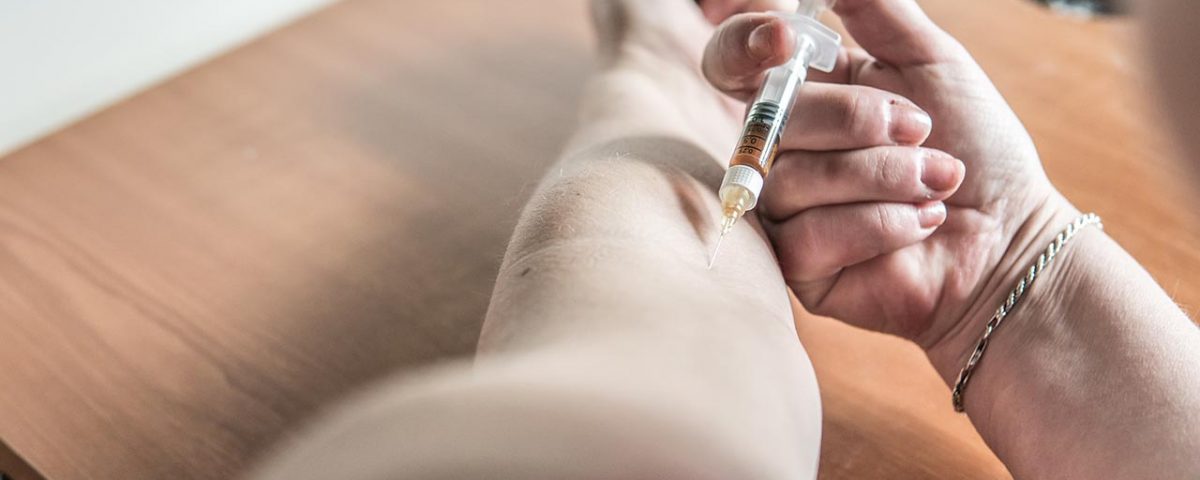Fentanyl is a narcotic or synthetic opioid that’s used to treat severe pain.
Although similar to morphine, it’s also 50 to 100 times more potent. Fentanyl is a prescription drug, though regularly monitored. It is made illegally and used as a cutting agent in other illicit drugs like heroin and cocaine. Also known by names like Actiq, Duragesic, and Sublimaze, fentanyl is often given to patients with severe pain after surgery or to patients with chronic pain who are addicted to other opioids. Because tolerance, dependence, and overdose are all real concerns when it comes to opioid use, you may be wondering, “how long does fentanyl stay in your system?” Whether you’re taking a drug test or have been using this drug for a while, our drug rehab in Philadelphia shares fentanyl detection times and more information about fentanyl that may interest you.
How Long Does It Take For Fentanyl to Kick in?
Fentanyl can be used as a shot, a patch for your skin, or as lozenges that are sucked like cough drops. However, fentanyl is also sold illegally as a powder, on blotter paper, or as eye drops, nasal sprays, or tablets made to look like other prescription opioids. Even counterfeit fentanyl pills have become more common in the United States, increasing the risk of overdose among users. This drug is a common cutting agent or additive in other drugs like heroin, cocaine, methamphetamine, and MDMA, all of which are illicit and addictive.
Like heroin, morphine, and other opioids, fentanyl affects the brain by binding to opioid receptors, which are found in areas associated with pain and pleasure. It’s often compared to morphine because smaller doses work faster and are more effective. Even 2 milligrams (mg) of fentanyl can be lethal.
Additionally, fentanyl activates the release of a key neurotransmitter called dopamine. Dopamine predominantly affects mood and pleasure, so when someone takes higher doses of fentanyl than prescribed or recommended, they may experience a pleasurable high.
When fentanyl effects kick in depends on how it’s taken. Fast-acting fentanyl tablets, lozenges, and nasal sprays usually take 15 to 30 minutes to work and wear off after around 4 to 6 hours. Fentanyl patches can take up to two days to begin working but usually last longer.
Some common side effects of fentanyl include:
- Euphoria or extreme happiness
- Drowsiness
- Nausea or vomiting
- Stomach pains
- Constipation
- Sedation
- Difficulty breathing
- Confusion
- Difficulty concentrating
- Unconsciousness
- Coma
- Tolerance
- Addiction
You can also overdose on fentanyl very easily because it’s so potent. People who are using this drug for long periods or suffer from fentanyl addiction and do not get opioid treatment are more likely to overdose as a result of increased tolerance. Additionally, those who use other drugs like meth, cocaine, and heroin frequently are also at high risk of overdosing because the dose of fentanyl used in production is usually unknown.
How Long Does Fentanyl Last in Your System?
While its side effects can kick in fairly quickly, how long does it take for fentanyl to wear off? How long fentanyl stays in your system depends on factors like the dose taken, your age, weight, body fat percentage, and metabolism, to name a few. The half-life of a drug also determines how long it takes for half of it to leave the body. The half-life of fentanyl is around 219 minutes or a little over 3.5 hours. This means that, usually, fentanyl can last in your system for 6 to 7 hours, and half of it would be flushed out after around 3.5 hours. However, this can change depending on the distribution and redistribution time of the form of fentanyl taken. Also, people who are addicted to fentanyl are more tolerant to usual doses, meaning they have to take more of it to experience a high. As a result, they may take more of it throughout a certain period, causing it to stay in the body longer than it would in other users.
Fentanyl Drug Test Detection Times
According to one study, fentanyl can be detected in your system for up to four days. The study also found that fentanyl couldn’t be detected in saliva at the time.1 Drug tests detect this drug using urine, hair, and blood tests. Below are the fentanyl drug test detection times according to the tests used.
- Blood: Fentanyl can be detected in blood anywhere between 5 and 48 hours after use.
- Urine: Fentantly can be detected in urine between 24 to 72 hours (one to three days) after use. These tests are most commonly used by employers.
- Hair: Although employers do not as commonly use hair tests, fentanyl can be detected in hair for up to three months after use.
Even if you haven’t taken fentanyl, false-positive results can also occur. Sometimes the presence of Benadryl (diphenhydramine) and a few other medications can trigger a false positive for fentanyl. If you’re taking a drug test for employment or for any other reason, let the testing agency know if you’ve taken Benadryl or any other medications.
Fentanyl is a deadly drug, but that doesn’t stop people from using it. Unfortunately, the opioid epidemic has fed into the growing rate of fentanyl abuse and opioid-related overdose deaths in the United States. Despite the harmful fentanyl side effects that can occur when it’s abused, physical dependence makes quitting nearly impossible without professional help. If you’re one of the people who are addicted to this drug or know someone who is, this is your sign to get help. Banyan Treatment Centers Philadelphia offers different treatment options for people battling substance use disorders, so they can safely regain their health and sobriety.
To learn more about our Philadelphia drug treatment, call us now at 888-280-4763, and one of our team members will talk you through the process.









